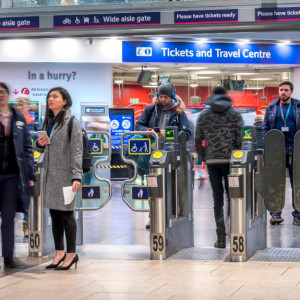Office of Rail and Road Publishes New Revenue Protection Suggestions

The Office of Rail and Road (ORR) has recommended a series of improvements for the handling of revenue protection within the rail industry, with new suggestions on how to make it more consistent, fair and effective. The suggestions come following a review commissioned by the government which found inconsistencies in approaches to revenue protection across the country's rail network, as well as an overall lack of information pertaining to correct tickets, passenger rights and any recourse for those suspected of fare evasion.

The rail regulator is recommending improvements to how the rail industry handles revenue protection, making it more consistent, fairer and effective (C) The Office of Rail and Road
The ORR also found significant scope to improve fairness in situations wherein which passengers have made 'honest mistakes' - as opposed to those who look to purposely avoid fare payments. The investigation aimed to establish a root cause of fare evasion and, in turn, form an industry-standard response to those issues.
Stephanie Tobyn, ORR's Director of Strategy, Policy and Reform, said:
Effective revenue protection is essential for a sustainable railway, but it must be fair and proportionate for passengers. Our recommendations aim to protect both industry revenue and support passenger confidence.
Our evidence shows a system that has evolved over time where the legal framework and enforcement processes are increasingly complex and appear weighted towards industry, leaving some passengers who make innocent errors vulnerable to disproportionate outcomes.
But meanwhile, fare evasion remains a significant problem, and rigorous action should be taken against those who intentionally seek to defraud the railway.
Following its review, the ORR has suggested that passengers be given clearer information regarding any conditions or restrictions placed on the tickets they are purchasing, such as permitted routes, time restrictions or railcard use in order to reduce confusion and unintentional mistakes. Passengers should be treated fairly and consistently when not travelling with a valid ticket, with a dedicated focus on those attempting to intentionally evade fares as opposed to those making genuine mistakes. The ORR has also stated that there should be a consistent test for the prosecution of those found utilising fare evasion tactics across all operators, with cases only proceeding when both justified and in the public interest.
Recommendations would also see more information on revenue protection and, what it truly means for a passengers' rights, rolled out in order to improve understanding of the scheme, with guidance on how penalties, prosecutions, out-of-course settlements and appeals are handled.
Finally, the ORR has suggested the establishing of a new forum or body tasked with identifying and promoting best practice across all forms of revenue protection policy and enforcement.
The report has now been handed to both the Transport Secretary and Department for Transport, which are set to consider the recommendations and their implementation.